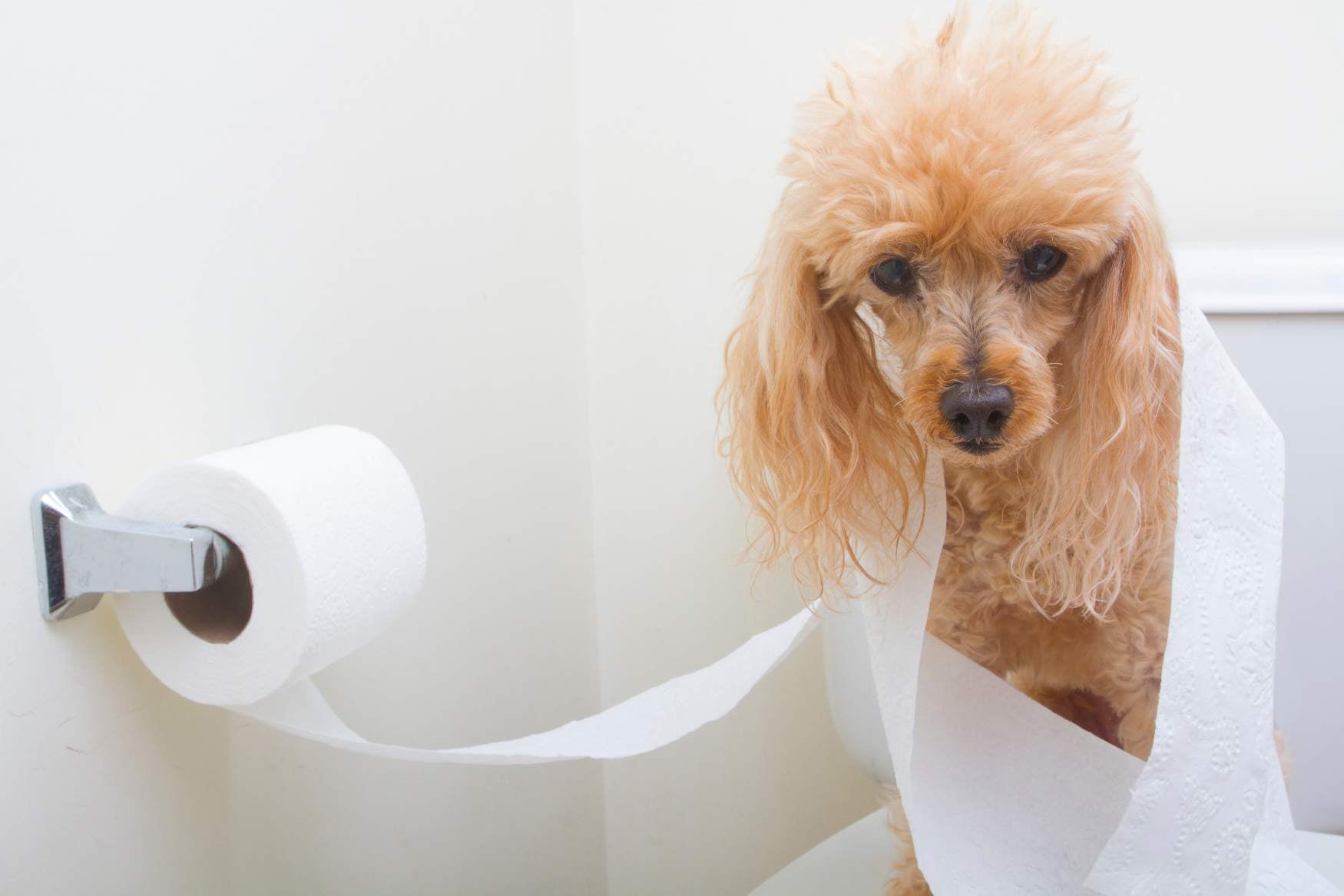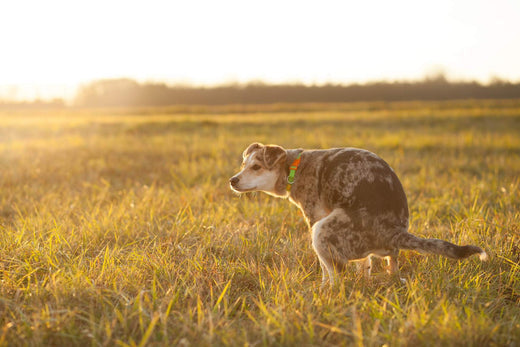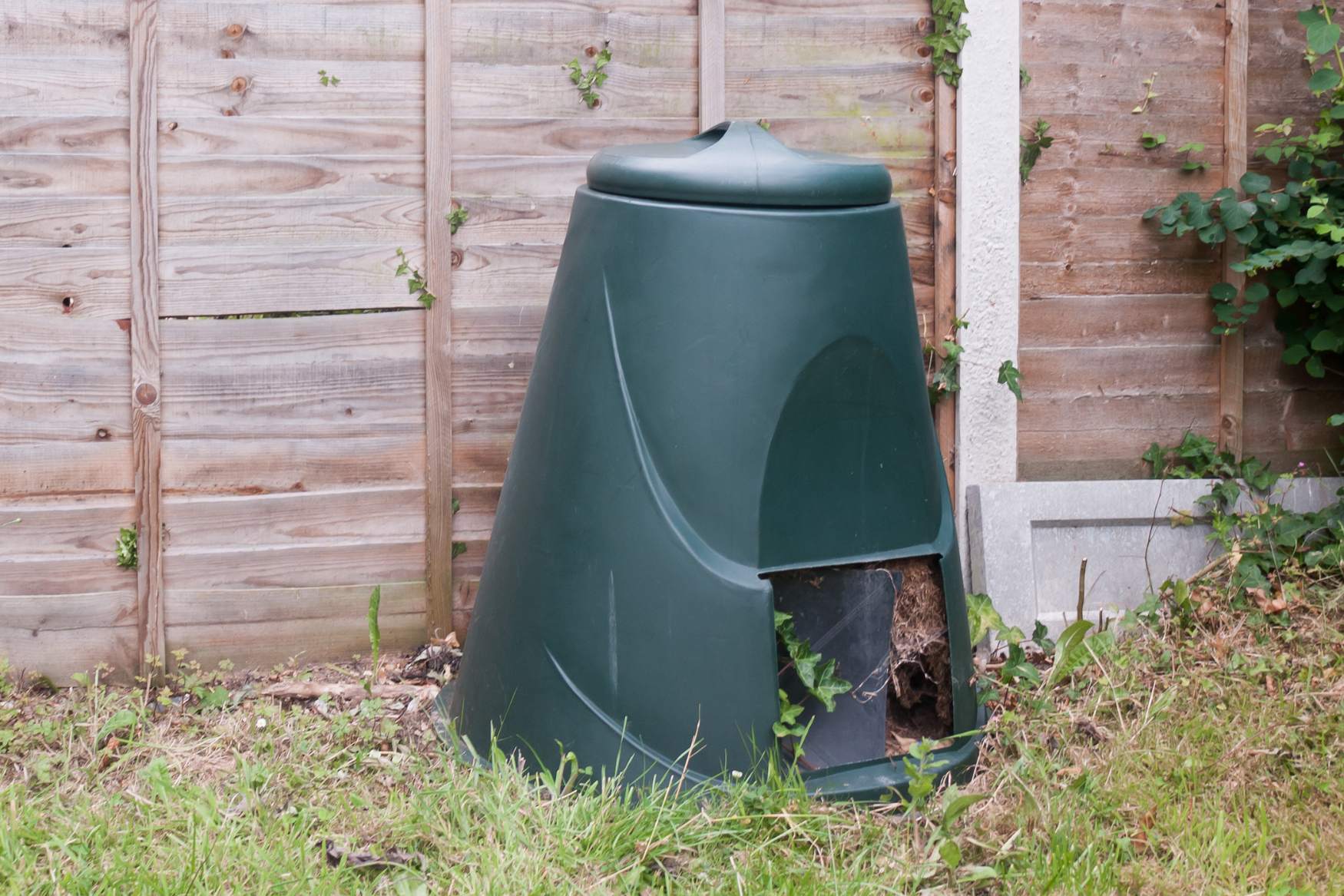So, let's say you don't or can't compost your dog's poo at home,
And, like everyone else in the UK, your local council doesn't collect dog poo for industrial composting...
But, you're a responsible dog owner who wants to do what they can for the environment. You realise that your poo bag usage is a big contributor to your dog's environmental pawprint.
If you're throwing your dog waste and poo bags into general waste, then ReSEAcled poo bags are the bags for you.
How we got it wrong
Like lots of companies, we started out with compostable poo bags as we believed these were the most environmentally friendly option because they were made from plants and broken down quickly!
But we soon learned that we were wrong on both accounts..
After digging deeper into our poo bag materials we found that our poo bags actually used at least 50% PBAT, which is a biodegradable plastic made from fossil fuels (i.e. crude oil - not plants!)
We then looked at other poo bags on the market and checked their PBAT content - all of them used at least 50% PBAT, with most using around 70%!
We then went on a hunt to find a truly 100% plant-based bag but found there was no such thing on the market as PBAT was needed for strength.
We later found that several life cycle analyses of plant based plastic shows that it is the same, if not worse, than conventional plastic when it comes to climate change, water use, pollution and eco-toxicity.
These negative impacts are worsened when compostable plastic doesn't get composted as intended.
Plant-based plastic also currently relies on food crops thus directly competes with human food production at a time when we struggle to feed millions people around the world already.
So it appeared that a plant-based poo bag was not the solution either.
We also started questioning the logic that these compostable poo bags 'prevent plastic ending up in landfills and the ocean' - a common marketing trope.
After asking our customers we found practically no one was composting compostable poo bags and over 95% were disposing of them in general waste i.e. landfill or incineration.
This is in line with other research that shows home composting isn't a viable or scalable solution for compostable plastics.
So, what happens to compostable or biodegradable plastic in landfill?
We were horrified to learn that not only would they potentially take years (possibly centuries) to breakdown in landfill, they would also produce methane, a highly potent greenhouse gas.
When we spoke with Dr Carly Fletcher, a Bioplastics researcher from Manchester Metropolitan University, Dr Fletcher advised the difference between plastic and compostable/biodegradable plastic in incineration was likely negligible.
However, we found one study showing PBAT (the main ingredient in compostable and biodegradable poo bags) releases significantly more carcinogens than standard plastic when incinerated.
So what are the options, considering the above?
1. Reusable poo bags - Yes they are a thing! However, these are best for people who can take their dog's poop home to compost it.
2. Re-using non-recyclable plastic waste from online shopping or groceries as poo bags e.g. crisp packets, bread bags, plastic wrapping from magazines or online shopping. For those of us who can't or don't compost dog poop and throw it into general waste.
3. Recycled poo bags - for people who may not have the time or organisational skills to collect non-recyclable waste! And for those people who dispose of dog waste via general waste.
The solution: ReSEAcled Poo Bags that stop ocean-bound plastic.
After considering the above, we decided to make our poo bags from 20% oyster shell waste, 50% recycled plastic and up to 30% virgin plastic.
So instead of making new plastic that contributes to landfill or incineration, we re-use waste (plastic and oyster shells) that was already destined to end up there.
In this way, they do genuinely free up landfill space and reduce waste going to incineration overall.
Our bags are recyclable, however due to the contents, sadly they cannot be placed in recycling and are intended for general waste!
Of course, there are always trade-offs. Ours being that our bags not biodegradable.
But equally, this means they won't produce methane in landfill and many studies have shown that compostable and biodegradable plastics don't biodegrade in the open environment (or even compost) either!
What's more, unlike compostable and biodegradable poo bags that use precious food crops to make new plastic, our renewable content is from oyster shell waste, which is a far more sustainable material than corn-starch (or other food crops).
Let's dive a little deeper into our materials!
Why recycled plastic?
The manufacture of recycled plastic requires less energy and produces fewer carbon emissions compared to compostable plastic.
It also reduces the amount of plastic ending up in the open environment, landfill or incineration by capturing and re-using it.
Why oyster shells?
Oysters are widely considered a sustainable and highly nutritious food source.
They are fast growing and clean the water of pollution.
Oyster farming provides livelihoods for local communities and men and women of all ages.
Unlike the farming of food crops, it does not require the clearing of forest and land, intense water use, pesticides, fertilisers or GMOs.
The shell of an oyster represents up to 90% of its total weight.
So every year, processing oysters for food leaves behind 3.9 million metric tons of non-biodegradable waste shell that is considered a nuisance and is often thrown back into the sea or landfill.
However, these shells can be used to make a variety of materials and can be added to plastic to reduce it's fossil-fuel content.
Converting oyster shells to powder for use in plastic is a relatively low energy process.
Re-using shell waste like this is a perfect example of a circular economy and can improve the sustainability of the aquaculture industry.
Why 30% virgin plastic?
We use just 25-30% virgin fossil-fuel derived plastic, unlike biodegradable and compostable poo bags that use up to 80%.
Our manufacturer has experimented with 100% recycled bags, but found that this adversely affected the strength and quality of the bags.
So, for now, we need this 30%.
But as technology changes we may be able to offer 100% oyster shell and recycled plastic bags in the future!
Summary: Pros and Cons
Recycled Plastic Poo Bags
Pros
+ Low carbon footprint
+ Does not rely on fossil-fuels
+ Easy to dispose of
+ Reduces plastic pollution by capturing and recycling it
Cons
- Not made from renewables
- Will not biodegrade and contribute to microplastics
Compostable Poo Bags
Pros
+ Made from at least 20% renewables (usually food crops)
+ Some will biodegrade in compost
Cons
- High carbon footprint
- Currently competes with human food production
- Often uses GMOs and chemicals (fertilisers, pesticides, etc)
- Needs home composter or industrial compost to biodegrade
- No collection schemes or industrial composting facilities accept them
- Won’t break down in landfill or open environment, contributing to microplastics
ReSEAcled Poo Bags (recycled plastic & oyster shell waste)
Pros
+ Low carbon footprint
+ Includes 20% renewable content
+ Oyster shells are sustainable - don't rely on GMOs, deforestation, competition with human food production or chemicals (e.g. fertilisers, pesticides, etc) or fossil fuel guzzling machinery
+ Oyster shells are socially responsible, providing livelihoods for local communities
+ Reduces plastic pollution by capturing and recycling it
+ Easy to dispose of
+ Stops ocean-bound plastic bottles (through partnership with Ocean Co.)
Cons
- Will not biodegrade and contribute to microplastics













